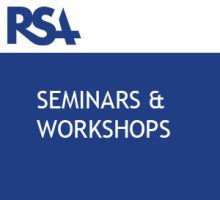The departments of Communication and Rhetorical Studies and Writing Studies, Rhetoric, and Composition at Syracuse University are delighted to welcome you to the virtual ninth biennial Rhetoric Society of America Summer Institute from May 24-June 4, 2021.
This promises to be a deeply engaging and productive two weeks. With 80 leading scholars in rhetorical studies designing 33 seminars and workshops, the learning, networking, and mentorship opportunities are bountiful. This program represents a long and rigorously reflexive process shaped in ways large and small by the ongoing revolutionary critiques and interventions of #RhetoricSoWhite. That process, like all dedicated antiracist efforts within the discipline to transform its relationship to whiteness, is imperfect, and demands intersectional focus on whiteness in relation to gender, sexuality, class, ability, and other axes of difference. It is also true that the program itself cannot convey many important aspects of the process that unfolded behind the scenes. These seminar and workshop visions and leadership represent the fundamental premise, as Kirt Wilson observed in his presidential Farewell Remarks, that “the study of rhetoric is intertwined with race at a performative level—rhetorical criticism, analysis, teaching, and mentoring are all racialized performances with racial consequences, intertwined with racialized systems of power, institutional practice, and knowledge creation.” The institute program endeavors to respond to Wilson’s challenge to us all to intersectionally take up together the difficult justice work “to build multiracial coalitions, to resist fascism in whatever form it takes, to build mutual aid networks, and to cultivate communities of care.”
From indigenous rhetorics (Powell and Riley-Mukavetz) to dwelling in the Anthropocene (Barnett and Clary-Lemon), trans rhetorics (Hsu and LeMaster), and rhetoric in dark times (Roberts-Miller and Skinner), the seminars invite us to explore some of the most exigent and generative topics in rhetorical studies today. Their leaders urge us to build alternative spaces through fugitive planning and white knowledge disruption (Kynard and McCann), to question decoloniality (Cortez, García, and Hanchey) while contending with ethics in an unjust world (Davis and Stormer), and to attend to issues of rhetoric, culture, and technology (Banks and Pfister).
The 25 weekend workshops feature leading scholars in rhetorical studies, cover a wide range of topics, and offer an informal space to build networks of scholars with shared interests. From medical ableism (Cherney and Johnson) to rhetorics of risk and public health (Bennett and Jack), from racialized masculinities in sexual worlds (Kelly and McCune) to the trouble of publics and counterpublics (Asen and Brouwer), our workshops offer numerous opportunities for collaboration and deep engagement. Want to know more about legal rhetorics (Burgess and West), archival power (Enoch and VanHaitsma), or the 2020 campaign and its aftermath (Anderson, Beasley, and Parry-Giles)? Or maybe you’d like to engage with critical horizons of 21st-century feminisms and rhetorical studies (Fixmer-Oraiz, Ratcliffe, and Sowards), consider precarity and visual praxis (Bruce and Hahner), or explore religious rhetorics of resistance (Johnson and Maddux). Other leaders include Christa Olson and María Alejandra Vitale (rhetoric and memory in Latin America), Annie Hill and Ashley Noel Mack (rhetoric and sexual violence), Lisa Corrigan and Abraham Khan (cultural politics and activism), Denise Bostdorff and Stephanie Kerschbaum (making a career in rhetorical studies), and David Cisneros, Lisa Flores, and Michael Lechuga (border rhetorics).
You can also attend a workshop with Kundai Chirindo and David Tell on race, regionalism, and rhetoric, one with Rebecca Dingo and Shui-yin Sharon Yam on the murky politics of transnational advocacy, or one with Damián Baca and Bernadette Calafell on histories of rhetoric. Jonathan Alexander and Katharine Mack offer a workshop on life writing, and Casey Boyle, Jim Brown, and Jennifer Sano-Franchini offer one on digital exclusions. Other topics include analyzing arguments (Palczewski, Rice, and Villadsen), writing new histories of U.S. presidential rhetoric and foreign policy (Prasch and Stuckey), the future of new materialism (Hawk, Keeling, and Rickert), mediated rhetorics of crisis and renewal (Jackson, King, and Levina), and, of course, pandemic rhetorics (Ihlen, Keränen, Kjeldsen, Melonçon, Just, Sastry, and Scott).
We’re also delighted to have Karma R. Chávez offer our keynote address.
For more information, contact Charles E. Morris III and Patrick W. Berry at rsa2021@syr.edu.


